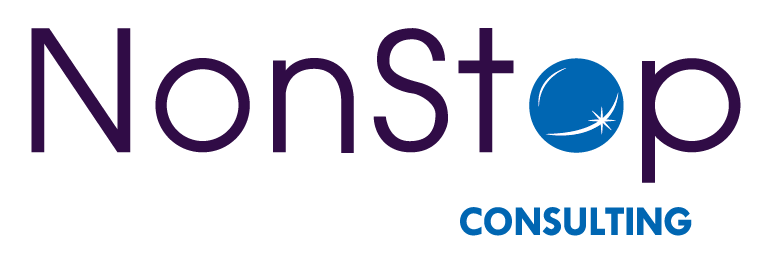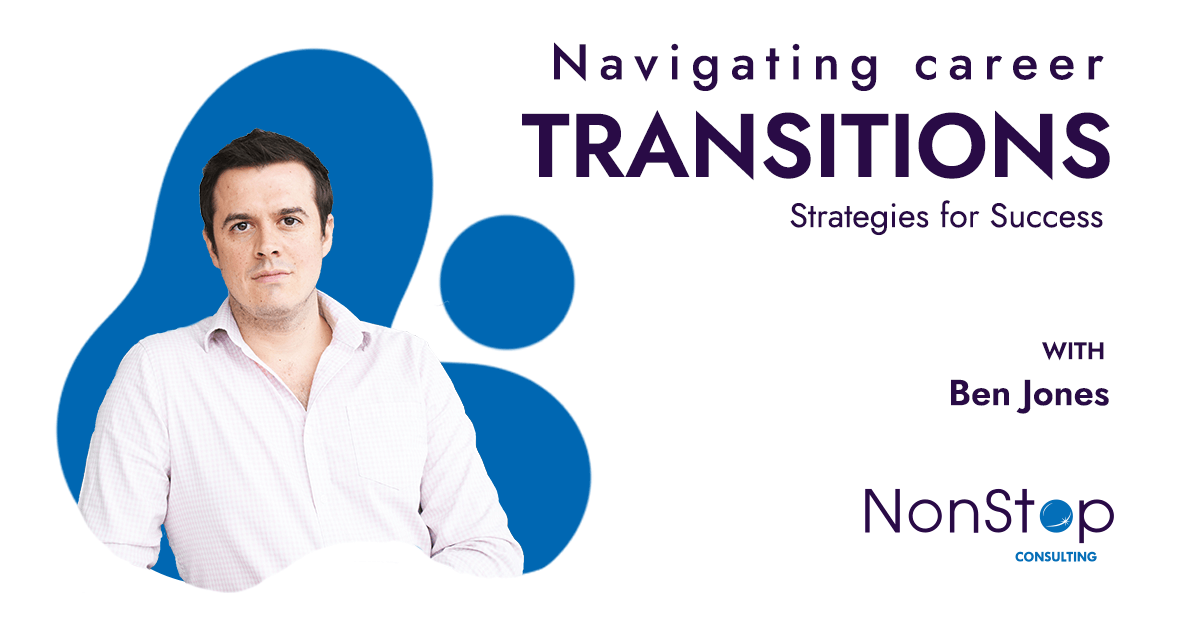Career transitions have become a common occurrence, especially in light of today’s rapidly changing job market, with many people motivated to progress in their professional lives. Gone are the days when you took a job and stayed until you retired. Nowadays, it’s common for people to not only change employer, but change whole industry.
Whether it’s due to technological advancements, industry disruptions, or personal aspirations, changing careers can be a challenge and for some, it can be hard to know where to start.
In this article, NonStop CEO Ben Jones leverages his decade of professional recruitment experience to outline strategies for success when navigating career transitions.
According to Ben, career transitions are increasingly becoming the norm rather than the exception. “The pace of change and the need for new skills have made career transitions a necessity for professionals who want to remain competitive and fulfilled in their work,” he said.
When it comes to making a successful career transition, there are several key things to keep in mind.
Self-reflection and personal motivations
Ben emphasised the importance of self-reflection and understanding one’s motivations. He advised individuals to ask themselves key questions such as, “What are my core strengths and transferable skills? What industries or roles align with my interests and values? What are my long-term career goals?”
By gaining clarity on these aspects, professionals can make informed decisions and set realistic expectations for their transition.
Upskilling and continuous learning
Furthermore, he highlighted the significance of upskilling and continuous learning. “In today’s rapidly evolving job market, staying relevant and adaptable is crucial. Invest in your personal and professional development by acquiring new skills, certifications, or qualifications that are in demand in your desired field,” he suggested.
By demonstrating a commitment to growth and showcasing a willingness to learn, individuals can enhance their marketability and increase their chances of a successful career transition.
Networking
Networking was another key strategy emphasised. “Building and nurturing a strong professional network can open doors to new opportunities and provide valuable guidance during a career transition,” he said.
He advised professionals to attend industry events, join relevant professional associations, and leverage online platforms like LinkedIn to connect with individuals in their target field.
Engaging in informational interviews and seeking mentorship can also provide valuable insights and support during the transition process.
Crafting a personal brand
Ben also stressed the importance of crafting a compelling personal brand. He said “Your personal brand is your unique selling point. It encompasses your skills, experiences, and reputation. Invest time in developing a strong online presence, including a well-crafted LinkedIn profile and a professional website if applicable. Showcase your achievements and highlight your transferable skills that align with your desired career path.”
By curating a strong personal brand, professionals can differentiate themselves and attract opportunities in their chosen field.
Perseverance and resilience
Perseverance and resilience during a career transition is a must too, Ben said. He acknowledged the process can be challenging and might involve setbacks. “Stay focused on your long-term goals and maintain a positive mindset. Treat setbacks as learning opportunities and use them to refine your approach. Keep adapting, refining your skills, and remain open to new possibilities,” he advised.
Career mentoring
Finally, Ben encouraged professionals to seek support from career coaches or mentors, or professional recruiters working in your industry. These individuals can offer valuable insights, provide feedback on resumes and cover letters, and offer interview preparation assistance.
Having a support system in place can greatly increase one’s confidence and chances of success during a career transition.
In conclusion, career transitions have become a regular occurrence in today’s fast-paced job market. To navigate these transitions successfully, professionals should engage in self-reflection, upskilling, networking, and personal branding. They should also cultivate perseverance, resilience, and seek support from career coaches or mentors. By implementing these strategies, individuals can increase their chances of a smooth and successful career transition.
As Ben said, “In an ever-evolving job market, embracing career transitions and equipping oneself with the right strategies is essential for professionals to thrive and find fulfilment in their professional journeys.”
By adopting a proactive and adaptable mindset, individuals can navigate career transitions with confidence and pave the way for a successful and rewarding future.





